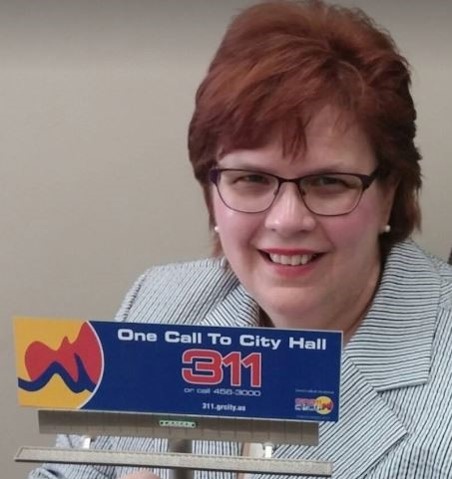Data as a Catalyst for Change in Grand Rapids
Jun. 27, 2019
Becky Jo Glover

In Grand Rapids, our city motto is the Latin phrase, Motu Viget, which translates to “strength in activity.” At the City, we live by these words every day. They motivate us to never shy away from the complicated issues but to instead tackle them head on and with intention. They’re our compass to keep striving towards a better future for all of our residents.
To meet these challenges, we have begun to integrate an equity lens into everything we do at the City, from fixing infrastructure to improving health and well-being. This is not just an oral promise that we have made to our constituents; it is a commitment and deliverable that our City Manager, Mark Washington, has deemed a priority across all levels of government. For example, starting next month, equity will be written into our city’s 3-year Strategic Plan. And, in a partnership with Kent County, we are beginning to implement Health in All Policies, an effort to integrate health, well-being and equity into the development and implementation of policy and programs, not traditionally health-related. As a medium-sized city, to accomplish these goals we need to work with our partners around the community. Partnerships and data are critical to expand the possibilities of what we can achieve for our city.
The power of liberated data
The data that we have been able to access through the City Health Dashboard has been a catalyst for integrating data-driven decision making throughout Grand Rapids and Kent County, especially as it relates to our equity story. Starting July 1st, Dashboard data will be embedded into metrics that the City will be reporting out in our strategic plan to make sure we are accountable.
We have also found the Dashboard to be even more powerful when it has been integrated with other data that we have collected. Like many cities across the U.S., Grand Rapids is working to address lead exposure, which has been linked with impaired brain function, slowed development in children, behavior problems, and poorer performance in school. Starting in 2016, the City created a task force to eliminate lead paint in homes and service lines. Since we’ve combined our data with the Dashboard’s census-tract lead data, we’ve been able to craft a more complete picture of this issue, such as who is most vulnerable and where, and communicate that story to our policymakers.
With lead as a leading public health challenge for the city, the task force prioritized increased funding from the budget, allowing the city to better target resources and hopefully save the city money in the long-term.
Using data to recruit partners
Data, and Dashboard data in particular have been useful as we’ve tried to bring diverse stakeholders to the table to improve health and equity throughout our city. Grand Rapids is currently working with Invest Health, a national cross-sectoral initiative whose goal is to improve health outcomes through targeted public and private investments in underserved areas. Our project team, comprised of representatives from health care, government, and community development, is seeking to invest in areas where they will have the largest impact. Using the Dashboard’s income inequality, unemployment, and life expectancy measures as a starting point, the Grand Rapids team was able to identify Neighborhoods of Focus (17 census tracts) that are struggling socioeconomically and experiencing health disparities. The Dashboard provided the level of granularity and visualization necessary to identify patterns, make connections between different issues, and establish a shared language with diverse actors about the importance of factors that shape health.
Since launching in 2018, Invest Health has already made great strides towards improving health and equity in these communities. Here are a few exciting stats:
Increase in Low Income Housing Tax Credits in 2018, resulting in over $50 million worth of credits - about 30% of the state’s available credits - to projects located in the Neighborhoods of Focus.
Spectrum Health invested $730,000 into Invest Health-related projects since the start of the Grand Rapids project
Affordable housing partner, LINC UP, received a $500,000 grant from Project Reinvest of Neighborworks to support affordable housing projects and efforts to connect residents with construction opportunities.
The City of Grand Rapids is committed to advancing these partnerships even further and continuing our efforts to integrate data into everything that we do. When cities – especially those that are smaller and medium-sized–are inclusive, we expand our capacity and are able to leverage diverse expertise towards solving the tough challenges. In Grand Rapids, this has made all of the difference.